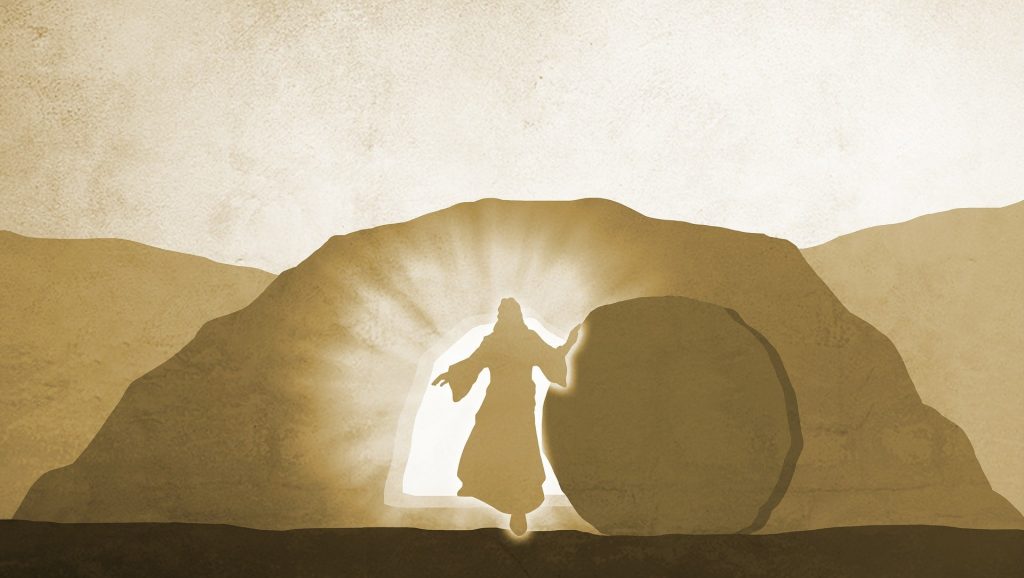
At Easter, Christians celebrate the resurrection of Jesus Christ, an event which makes Christ unique among men. This uniqueness does not lie in the mere fact that Jesus Christ came back from the dead, because other people have come back from the dead. The Bible tells of several instances of people dying and being miraculously brought back to life. Jesus himself raised at least three people from the dead during his earthly ministry. Many examples have also been recorded even in modem times. But in all these cases, the people came back to life with their natural bodies. Their bodies retained the same qualities as those of every living human being. They could not pass through physical barriers. They could not appear and disappear. They experienced aging and decay. In fact, they have all either died again, or are expected to die again.
But Jesus is described by eye-witnesses as having come back from the dead as a dramatically transformed being. Although he still had what appeared to be his old body, with the nail-prints in his hands and feet, and the wound mark in his side (Lk. 24:39-40, Jn. 20:20), there was now something remarkably different about it. He could appear and disappear at will (Lk. 24:31,36). He entered locked rooms (Jn. 20:19,26). And instead of continuing his life on earth and dying again in due course, he rose up into the sky and ascended into heaven (Mk. 16:19, Acts 1:9-11).
A comprehensive victory
The fact is that Christ’ s resurrection was not a temporary reprieve from death: it was a total, comprehensive and permanent victory over death. Unlike the other people, who were merely granted a brief respite from the grave, Christ was never going to die again. As the Bible says: “For we know that since Christ was raised from the dead, he cannot die again; death no longer has mastery over him” (Rom. 6:9). And as evidence of this, he was raised with a transformed body with supernatural qualities. Paul calls this new kind of body a “spiritual body” (I Cor. 15:44). He also describes it as “imperishable” (I Cor. 15:42), which means “indestructible, everlasting”; or, as the Amplified Bible puts it, “immune to decay, immortal”. In other words, Jesus came back from the dead with a body that was no longer subject to death or decay.
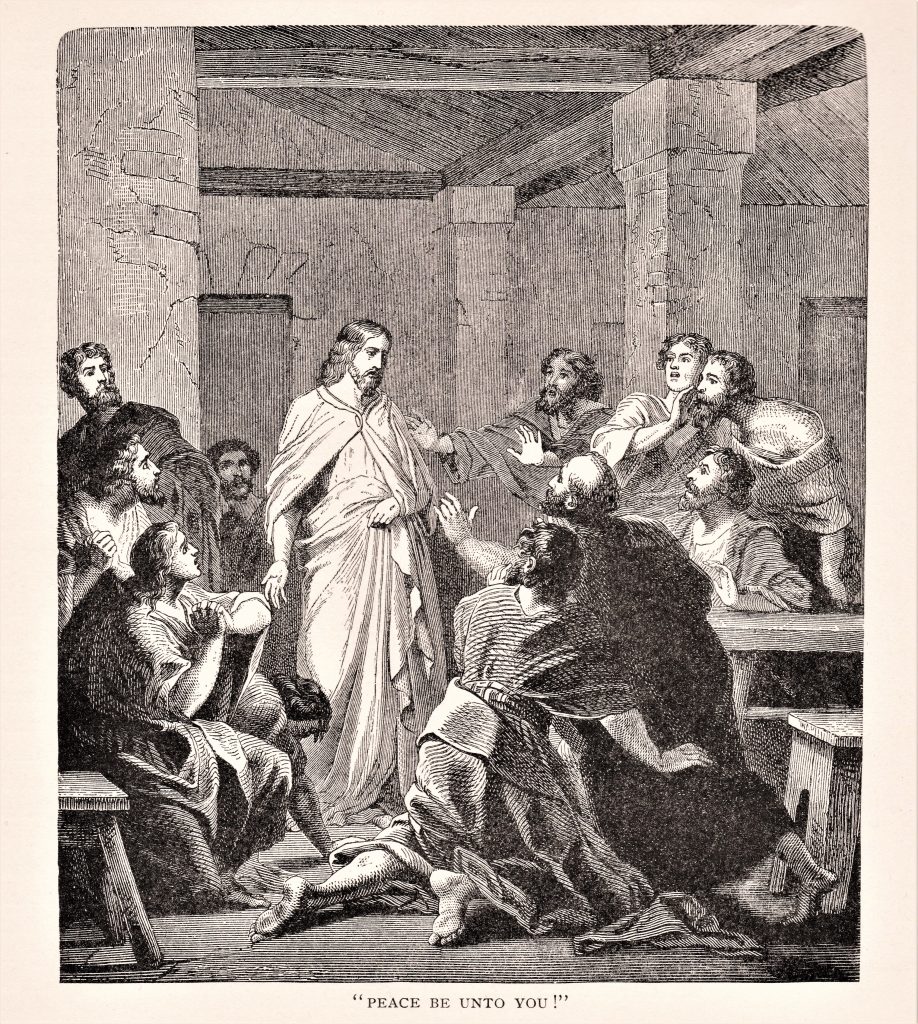
A pivotal truth
During his life, Jesus demonstrated power over all manner of problems. He healed every sickness brought to him, he forgave sins, he fed the hungry, he calmed storms, he cast out devils, he raised the dead, and he lived a sinless life. But like ordinary men he was subject to tiredness, hunger, physical pain, and other physical limitations. For our sake, He also made himself subject to death, which is described as the last enemy (I Cor. 15:26). He was crucified, suffered, died and was buried. But now, having overcome the last enemy through resurrection (2 Tim. 1:10), and having received a spiritual body which is no longer subject to physical limitations, he has shown himself victorious over every power that is named. By including death among his defeated opponents, Jesus has manifested victory over every enemy of God and man.
It is therefore not surprising that the resurrection is such a pivotal truth in Christianity. Without it, Christianity is of little or no value. As Paul says in I Corinthians 15:14, “If Christ has not been raised, our preaching is useless and so is your faith.” In verses 15 to 17, he continues: “If Christ has not been raised, your faith is futile; you are still in your sin. Then those who have fallen asleep in Christ are lost. If only for this life we have hope in Christ, we are to be pitied more than all men.”
The sign of Jesus’ authority
Jesus himself regarded the resurrection as the major sign to the world of his authority and his identity. In Matthew 12:38, we read that the Pharisees and teachers of the law asked him for a miraculous sign (of his authority). But Jesus answered: “A wicked and adulterous generation asks for a miraculous sign! But none will be given it except the sign of Jonah. For as Jonah was three days and three nights in the belly of a huge fish, so the Son of Man will be three days and three nights in the heart of the earth. The men of Nineveh will stand up at the judgment with this generation and condemn it; for they repented at the preaching of Jonah, and now one greater than Jonah is here” (Matt. 12:39-41).
Again, when the Jews asked Jesus for a sign to show the authority by which he drove out those who had turned the temple into a market, he answered them “Destroy this temple, and I will raise it again in three days” (Jn. 2:19). The Jews replied, “It has taken forty-six years to build this temple, and you are going to raise it in three days?” But, as John explains, “the temple he had spoken of was his body. After he was raised from the dead, his disciples recalled what he had said. Then they believed the Scripture and the words that Jesus had spoken” (Jn. 2:20-22).
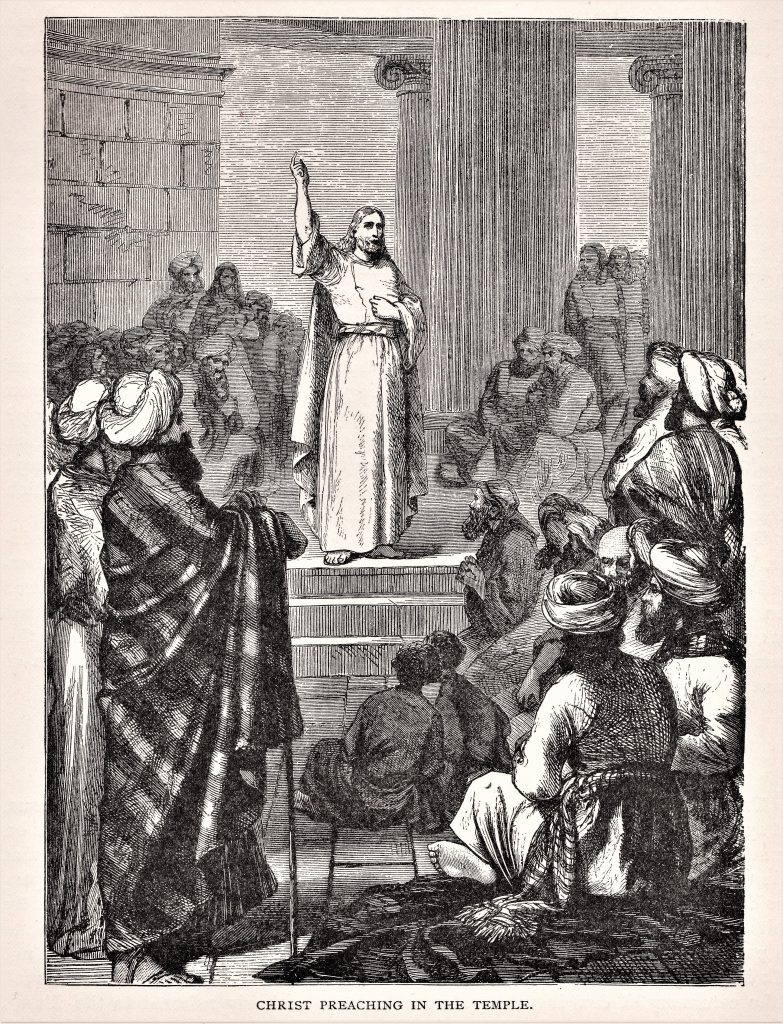
The Resurrection in the Scriptures
It is interesting to note that during the time of Jesus, while many were familiar with the Scripture passages relating to the birth of the Messiah (eg. Matt. 2:4-6) hardly anyone even thought that Christ was going to die, much less rise again. It is therefore not surprising that the disciples were not familiar with Scriptures relating to his resurrection (Jn. 20:9). When the risen Jesus encountered the two disciples on the road to Emmaus he asked them “Did not the Christ have to suffer these things and then enter into his glory?” He then proceeded to explain to them “what was said in all the Scriptures concerning himself’ (Lk. 24:27). As he “opened” the Scriptures to them the Holy Spirit warmed their hearts with a conviction of the truth of his words (Lk. 24:32). Later on, when Jesus appeared to the whole group, he told them that his resurrection, of which they were witnesses, was part of Scripture prophecy in “the Law of Moses and the Prophets and the Psalms” concerning him. Then he “opened their minds, so they could understand the Scriptures” (Lk. 24:45).
One of the hints in Scripture about the resurrection is found in Isaiah 53, the familiar prophecy about the suffering and death of the Messiah. This passage, which describes the Messiah being “assigned a grave with the wicked, and with the rich in his death” (v.9), also predicts a new life for him. In verses 10 and 11 we read “and though the LORD makes his life a guilt offering, he will see his offspring and prolong his days…. After the suffering of his soul, he will see the light of life and be satisfied. Therefore I will give him a portion among the great, and he will divide the spoils with the strong, because he poured out his life unto death…” The import of these verses is that though the Messiah would be put to death for the sins of others (v.8), he would live again triumphantly because he himself is sinless (v.9).
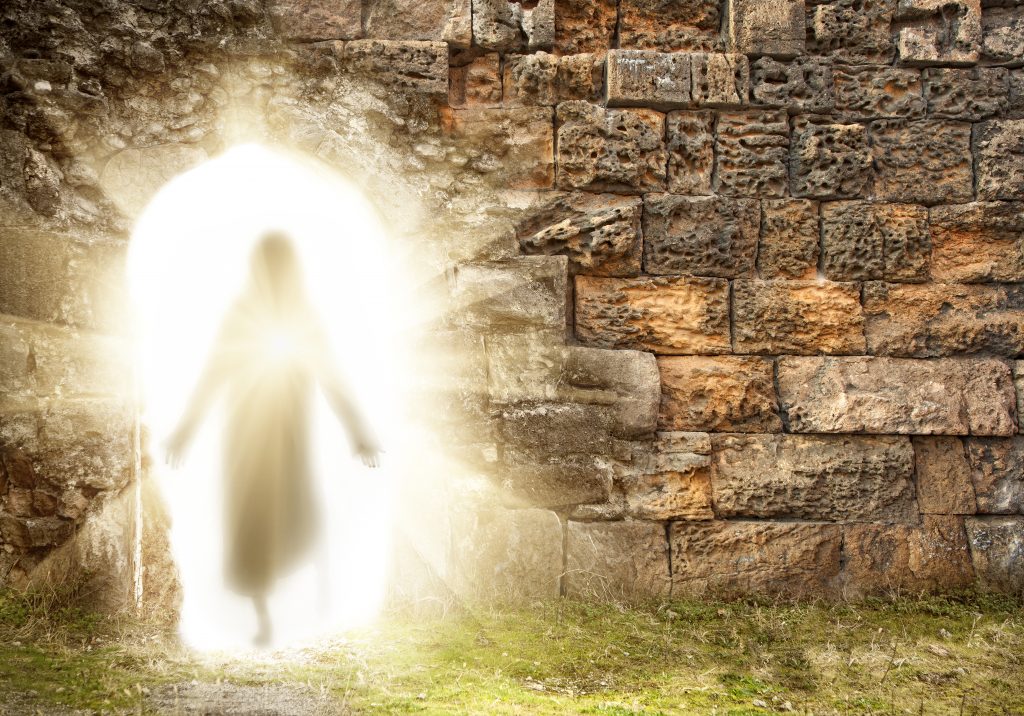
The key Resurrection scripture
But the key passage that talks about the resurrection is found in one of the psalms of David, that great ancestor of the Messiah. In Psalm 16 we read “I have set the LORD always before me. Because he is at my right hand, I will not be shaken. Therefore my heart is glad, and my tongue rejoices; My body also will rest secure, because you will not abandon me to the grave, nor will you let your Holy One see decay. You have made known to me the path of life; you will fill me with joy in your presence, with eternal pleasures at your right hand” (Psa. 16:8 -11).
The title Holy One is one that is usually applied to God (e.g. Job 6:10, Is. 43:15, 49:7). But here, the Psalmist is addressing God, while referring to someone else as God’s Holy One, thereby investing that person with a divine title. In the Bible, the Messiah or Anointed One (Psa. 2:2, Is. 61:1-3), who comes “in the name of the Lord” (Psa. 118:25-26), is the one person who is given God’s titles. For example in Isaiah 9:6-7, the well-known Messianic passage, he is called “Mighty God” and “Everlasting Father”; and in Jeremiah 23:5-6, he is called “The LORD Our Righteousness”. The person referred to in Psalm 16 as God’s Holy One must therefore be the Messiah. This implies that the Psalmist was speaking prophetically, predicting that the Messiah would not remain in the grave, nor would his body suffer decay. Since death is a consequence of sin and takes its power from sin (Rom. 5:12, 1 Cor. 15:56), death would not be able to keep the sinless Holy One in its power.
Peter references the key scripture
Peter confirms this in his sermon on the day of Pentecost when he says “It was impossible for death to keep its hold on him” (Acts 2:24). Then, after quoting the above passage from Psalm 16, he declares: “Brothers, I can tell you confidently that the Patriarch David died and was buried, and his tomb is here to this day. But he was a prophet, and knew that God had promised him on oath that he would place one of his descendants on his throne. Seeing what was ahead, he spoke of the resurrection of Christ, that he was not abandoned to the grave, neither did his body see decay. God has raised this Jesus to life, and we are all witnesses of the fact” (Acts 2:29-32).
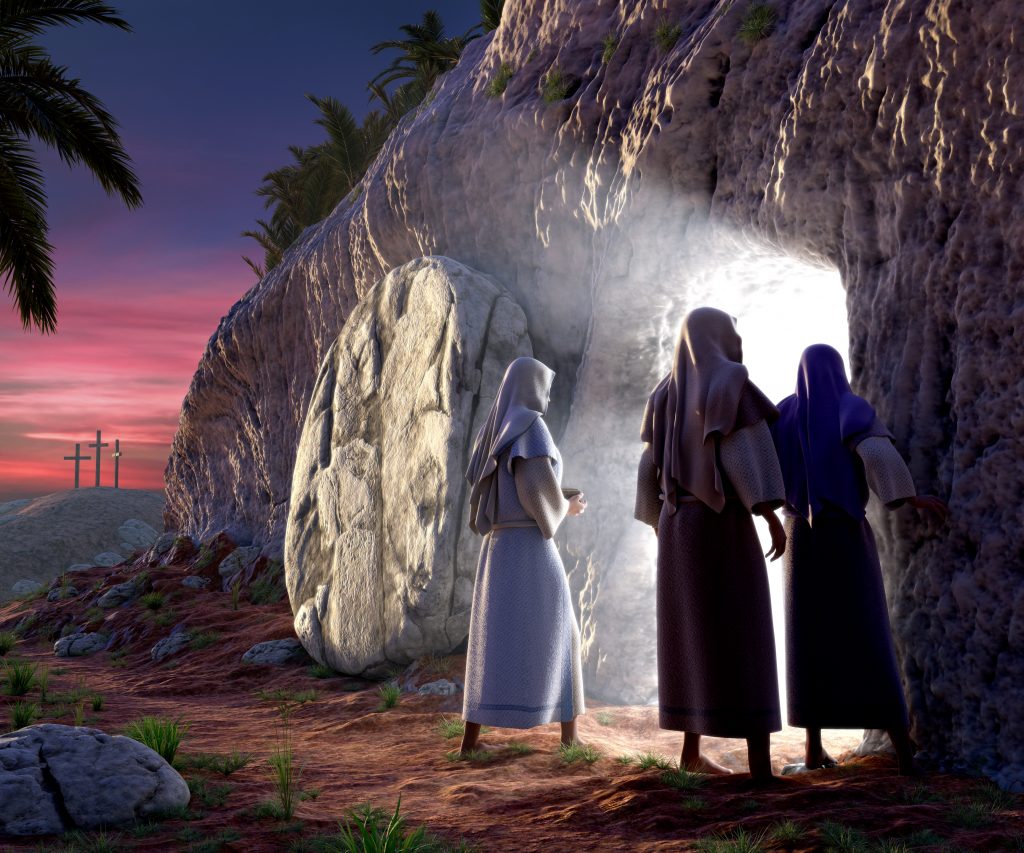
Irresistible proof of Christ’s identity
When one realizes that the Scripture predicts the resurrection of the Messiah, it becomes clear that after fulfilling all the prophecies in the Bible concerning his birth, his life and his death, if Jesus had failed to fulfill the prophecy of rising from the dead, he could not truly have been the Messiah. But the fact is that Jesus did rise from the dead, confirming that he alone of all men was without sin (Heb. 4:15), and that he is the Son of God. As Paul says in Romans 1:4, Jesus “through the Spirit of holiness was declared with power to be the Son of God by his resurrection from the dead”. Furthermore, Jesus ascended to heaven, to the right hand of God the Father, thus fulfilling the remaining scriptures concerning the first coming of the Messiah (Psa. 110:1, Heb 1:13, Acts 1:9-11).
The resurrection may therefore be considered the major, irresistible proof that Jesus is the Son of God and the Messiah. Thomas, the doubting disciple, could not bring himself to believe the reports of his colleagues that Jesus had risen from the dead and appeared to them. But when he finally saw the risen Lord for himself, he could not help but proclaim “My Lord and my God!” (Jn. 20 :28). The resurrection had proved to him beyond any doubt that Jesus was God. Doubting Thomas had become Believing Thomas.
What does it mean for us?
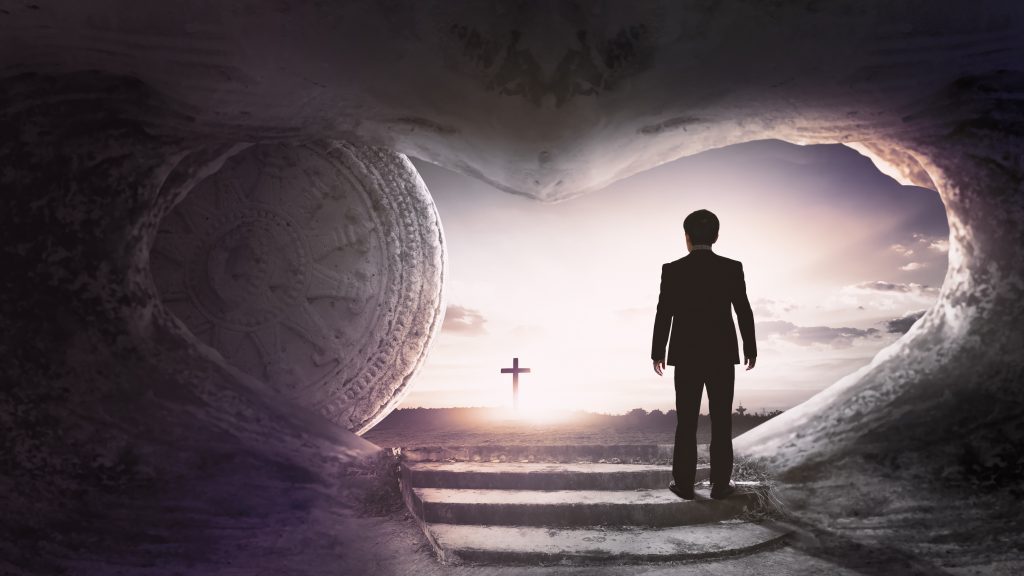
The resurrection of Jesus Christ has profound implications for Christians. It is the guarantee to believers that they shall also experience resurrection – victory over death, and a new imperishable body. Jesus said “I am the resurrection and the life. He who believes in me will live, even though he dies” (Jn. 11:25). Paul also writes “But Christ has indeed been raised from the dead, the firstfruits of those who have fallen asleep. For since death came through a man, the resurrection of the dead comes also through a man. For as in Adam all die, so in Christ all will be made alive. But each in his own turn: Christ, the firstfruits; then, when he comes, those who belong to him” (I Cor. 15:20-23). Resurrection is a promise to those who belong to Christ, who believe in him.
Moreover, the resurrection is more than just a wonderful future hope for the believer. The Bible tells us that the power of the resurrection is already at work in the lives of believers. Paul refers to this power in his letter to the Ephesians when he writes “I pray … that the eyes of your heart may be enlightened in order that you may know… his incomparably great power for us who believe. That power is like the working of his mighty strength, which he exerted in Christ when he raised him from the dead and seated him at his right hand in the heavenly realms…. (Eph. I:18-20). In fact the Bible indicates that in the spiritual dimension, because of our union with Christ, God has already “raised us up with Christ and seated us with him in the heavenly realms in Christ Jesus” (Eph. 2:6). No wonder Paul says we are “more than conquerors” (Rom. 8:37). The resurrection of Jesus Christ guarantees victory over death and provides power for a victorious life.
A confession of faith
But the benefits of the resurrection can only be received and experienced by faith. Thomas was not there when the risen Christ first appeared to the disciples, and he used that as an excuse for not believing. Nobody living today was there when Jesus appeared to his disciples. None of us saw it happen. But what Jesus told Thomas applies equally to us – “Blessed are those who have not seen, and yet have believed” (Jn. 20:29). When our hearts are open to God, we will find that his Word carries within it the conviction of truth, so that we can say with the two disciples on the road to Emmaus “Were not our hearts burning within us while he talked with us … and opened the Scriptures to us?” (Lk. 24:32).
What is your attitude to the resurrection of Jesus Christ? May it be that of faith, leading to the confession of Thomas about Jesus – “My Lord and my God”. The Bible says “If you confess with your mouth, ‘Jesus is Lord,’ and believe in your heart that God raised him from the dead, you will be saved” (Rom. 10:9). May that be your experience today.
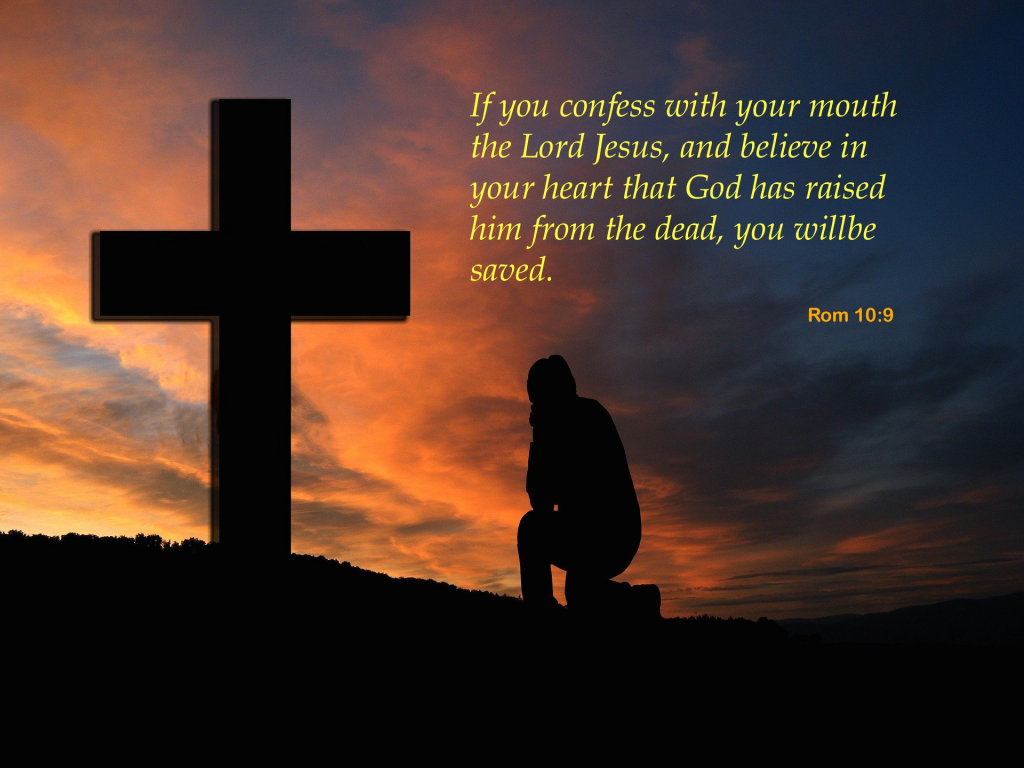

Francis, this is truly an insightful and well studied reflection on Our Lord’s resurrection and its implications for the believer and for the entire world. Like the disciples on the road to Emmaus, may our hearts continue to burn within us as we meditate on Christ and His passion and resurrection.
Thank you.
Francis, nice job! Well said my friend.
Terry, thanks a lot. Much appreciated.
Excellent exposition of the message of the cross!! Thanks for sharing!
Thank you, God Bless.
A truly insightful and inspirational piece. Well delivered, Francis 🙏🏽
Thank you.
This teaching on the resurrection … takes Christians back to our roots and emphasizes the uniqueness of our faith in the Lord.
Great job.
Thank you.